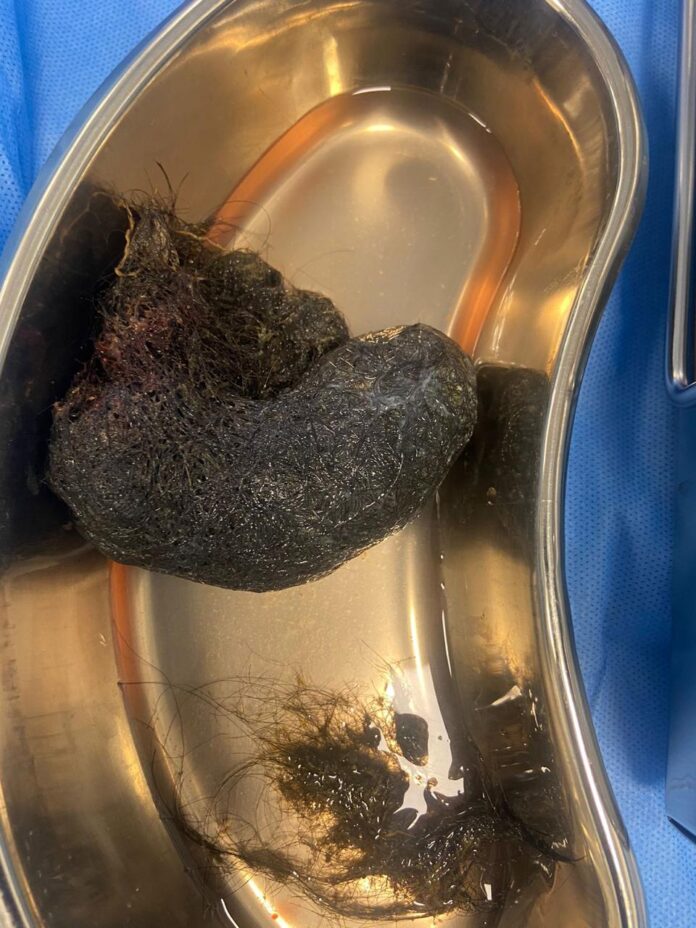Bengaluru, 9th September 2024- In a case described as “one in a million,” a team of Dr. at Aster Whitefield Hospital successfully treated an 8-year-old girl suffering from trichobezoar, a condition caused by trichophagia, the compulsive eating of hair also known as Rapunzel Syndrome.
It started as an innocent habit. For two years, Aditi (name changed), the young girl from Bengaluru experienced intermittent bouts of poor appetite and frequent vomiting. Her parents, puzzled by her persistent symptoms, sought help from numerous doctors. But each diagnosis and treatment failed to bring relief. Little did they know, the answer lay within their daughter’s unique and rare behavior. An answer that would lead to a rare medical condition.
Top Courses in Data Science Engineering
The family, living in a close-knit, affluent joint household, became increasingly worried as their daughter’s condition deteriorated. Initial evaluations by paediatricians, general physicians, and ENT specialists suggested gastritis and prescribed multivitamins. It wasn’t until a month ago that the puzzle began to unravel when the girl was admitted to the Paediatric Emergency at Aster Women and Children Hospital, Whitefield, Bengaluru.
After doctors transferred her to Aster Whitefield Hospital for further examination, they discovered that she had a trichobezoar—a hair mass stuck inside the gastrointestinal tract. This exceptional condition resulted from severe symptoms linked to trichophagia, the compulsive eating of hair.
The medical team led by Dr. Manjiri Somashekhar, the Lead & Senior Consultant – Paediatric Surgery. Dr. Sethu Mohan K, Senior Specialist – Pediatric surgery and Dr. Aravind A. Consultant – Paediatrics and paediatrics Intensive Care addressed this complex case.
Dr. Manjiri Somashekhar, Lead & Senior Consultant – Paediatric Surgery, Aster Women and Children Hospital, Whitefield explains. “Trichobezoar is an extremely rare condition and especially very rare in a child as young as Aditi. It is often associated with trichophagia, a psychological disorder where individuals eat hair. While commonly seen in adolescent girls, finding this in a much younger child is extraordinary and highlights the uniqueness of this case.”
ALSO READ: CTE and DTE, Govt of Uttar Pradesh Hosted Three-Day Workshop on Cybersecurity for Faculties
The surgical team performed open surgery on Aditi to remove the hairball, as it was too large and sticky to be removed endoscopically. They chose this approach to prevent spillage into the peritoneal cavity, which proved effective. The surgery lasted two and a half hours, and the team hospitalized Aditi for a week for postoperative care.
“If left undiagnosed, this condition could have led to severe malnutrition, anaemia, and significant bleeding from the stomach.” Dr. Sethu Mohan K, Senior Specialist – Pediatric surgery, Aster Women and Children Hospital, Whitefield emphasized. “The hairball could have embedded into the stomach lining, causing severe bleeding during removal and potentially leading to life-threatening complications such as perforation.”
Following the surgery, Aditi was placed on a high-protein diet and partial parenteral nutrition to address her malnutrition. She also received counselling to manage her trichophagia. A child psychologist is overseeing her mental health, with her family closely involved in the treatment plan.
“The surgery was intricate and demanding,” recalled Dr. Aravind A. Consultant – Paediatrics and Paediatrics Intensive Care, Aster Women and Children Hospital, Whitefield. “But it was the only way to ensure the best outcome for our young patient.“
The diagnosis initially shocked the child’s parents. Doctors provided extensive counselling to help them understand the condition and the critical nature of the treatment. Their cooperation was instrumental in early identification of symptoms and seeking appropriate medical care. The family’s vigilance and support continue to play a vital role in the child’s recovery.
The long-term prognosis for the child is positive, provided she continues to receive psychological support and regular monitoring. Preventive measures include educating parents about the signs of trichophagia, such as sparse hair in the frontal scalp area, and the importance of psychological assessment in conjunction with surgical treatment.
This year educate yourself and develop your career with EdTech Platform EasyShiksha.com






































































